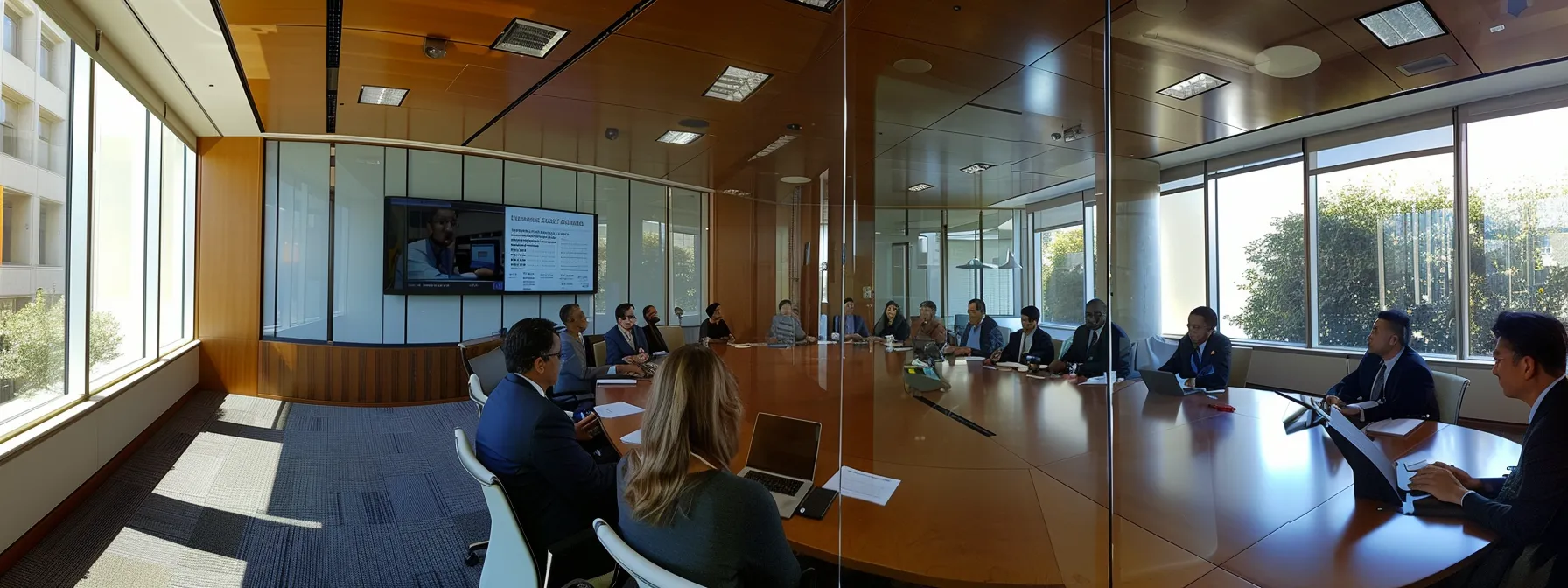Disclaimer: We sometimes use affiliate links in our content. For more information, visit our Disclaimer Page.
Are you facing a workplace dispute and unsure of your rights? You’re not alone; many employees struggle with navigating conflicts without proper support. This blog post will explore the vital role of union representation in workplace disputes, focusing on how unions protect employee rights under laws like the Civil Rights Act of 1964 and the advantages of engaging your bargaining unit when issues arise. You’ll learn how union support can lead to better outcomes in disputes and what steps to take if you need assistance. Addressing these concerns will empower you to protect your rights and ensure fair treatment at work.
Key Takeaways
- Unions provide vital support for workers in advocating their rights and negotiating better conditions
- Understanding the grievance process empowers employees to effectively address workplace disputes
- Collective bargaining agreements safeguard employee rights and ensure fair treatment in the workplace
- Union representation enhances job security and mitigates workplace retaliation against employees
- Even unrepresented employees can access resources to navigate disputes and assert their rights
Understanding Union Representation in the Workplace

Unions play a vital role in advocating for employees and protecting their rights in the workplace. As a member of a union, you can benefit from strengthened policies that address issues like layoffs and settlements. Understanding the differences between unionized and non-unionized environments, along with dispelling common myths about union representation, will empower you to make informed decisions about your workplace faith and support systems.
The Role of Unions in Advocating for Employees
Unions serve a crucial function in advocating for employee rights by ensuring occupational safety and health standards are met in the workplace. They represent members in discussions with supervisors, pushing for policies that protect workers from unsafe conditions and unfair treatment. When a workplace dispute arises, unions can guide employees through the process, ensuring that their concerns are addressed effectively and in a manner that promotes fair behavior from all parties involved.
Additionally, unions play a significant role during times of strike action, supporting employees who choose to stand up for their rights. The duty of fair representation requires unions to act in the best interests of all members, regardless of their individual situations. With union backing, employees often feel more empowered to advocate for necessary changes, knowing they have strong support during challenging negotiations with management.
Benefits of Union Membership for Workers
Joining a union provides significant benefits for workers by ensuring that your employment contract is respected and your rights are upheld. Unions offer support in matters such as negotiating salary increases, improving workplace safety standards, and protecting against unfair dismissals. Additionally, they empower workers to voice grievances collectively, making it easier to petition management for necessary changes or to challenge any prohibitions that might hinder employee rights.
Moreover, unions provide access to resources like citizens advice for workers facing disputes. This support can be invaluable during challenging situations such as disciplinary actions or contract negotiations. By having union representation, you gain not only professional assistance but also the confidence to advocate for your rights and those of your colleagues, leading to a more equitable workplace environment.
Differences Between Unionized and Non-Unionized Environments
In unionized environments, employees benefit from established procedures and protections that ensure their voices are heard. For instance, under the Railway Labor Act, unions are encouraged to engage in negotiations with employers in good faith, creating a precedent for resolving disputes effectively. In contrast, non-unionized workplaces often lack the structured support necessary for employees, making it more challenging for them to advocate for their rights during conflicts.
The differences become even more apparent during periods of economic hardship, such as the Great Depression, when union support played a crucial role in protecting workers’ rights and improving their conditions. In public sector jobs, union representation can lead to better job security and working conditions, while non-unionized employees may find themselves without the same level of support. Understanding these distinctions can empower you to navigate workplace disputes more effectively, whether you are in a union or not.
Common Myths About Union Representation
One common myth is that unions create a conflict of interest between employees and employers. In reality, union representation in the workplace is designed to protect your rights and improve conditions, aligning your interests with those of the employer through cooperative negotiations. When grievances arise, unions help navigate these discussions in accordance with labor law, creating a fair process for all parties involved.
Another misconception is that union involvement will lead to disputes being settled in court. While court action can be an option, the majority of workplace grievances are resolved internally through union negotiations. This process often leads to more efficient and favorable outcomes for employees, allowing for faster resolutions that keep everyone focused on their jobs rather than lengthy legal battles.
Union representation gives workers a voice, but understanding their rights is just as crucial. Next, we’ll examine the laws that safeguard these rights and ensure fair treatment in the workplace.
The Legal Framework Protecting Employee Rights

Key labor laws, including the National Labor Relations Act, establish employee rights and protect against coercion in the workplace. Understanding how collective bargaining agreements safeguard your wage and working conditions is essential. This section also covers the grievance process, including steps for appeal and how to address disciplinary matters effectively, ensuring that your rights are upheld during workplace disputes.
Key Labor Laws Supporting Union Activities
Key labor laws, like the National Labor Relations Act (NLRA), provide essential protections for workers engaging in union activities. Under this law, employees have the right to organize, engage in picketing, and collectively bargain with their employers without fear of retaliation. These protections also encompass the obligation of employers to negotiate in good faith, preventing situations where an impasse could lead to a labor strike or lockout, thereby safeguarding workers’ interests in negotiations.
Understanding the implications of legal liability under labor laws is crucial for both employees and employers. Employers who fail to comply with these regulations may face penalties, further incentivizing them to uphold fair practices. Furthermore, when disputes arise, the grievance process established by these laws allows for structured resolution, ensuring that your rights are protected and that you have a clear pathway to address any unfair treatment in the workplace:
Employee Rights Under the National Labor Relations Act
The National Labor Relations Act (NLRA) plays a critical role in protecting your rights as an employee, particularly regarding employment discrimination. This law ensures that you have the right to organize, seek arbitration for workplace disputes, and engage in union activities without fear of retaliation from your employer. If you experience discrimination based on union involvement or other protected activities, you can utilize the grievance process established under the NLRA to seek adjudication and remedy your situation effectively.
Understanding your rights under the NLRA empowers you to take action when facing workplace challenges. You can present evidence of unfair treatment or discrimination, which can significantly strengthen your case during negotiations. This law not only guards against unjust workplace practices but also lays the groundwork for a fair and equitable resolution of conflicts, further enhancing your overall job security and satisfaction.
How Collective Bargaining Agreements Safeguard Workers
Collective bargaining agreements (CBAs) serve as a critical tool in protecting your rights as a worker. These legally binding contracts, negotiated between unions and employers, establish clear terms for wages, benefits, and workplace conditions. Under various labor legislation, including provisions related to the Americans with Disabilities Act of 1990, CBAs ensure that your needs are met and provide a framework for addressing grievances, thereby promoting fair treatment within the jurisdiction of both federal and state labor laws.
When you engage in a union with a majority of your colleagues, the strength of collective bargaining can improve your workplace environment significantly. Fees associated with union membership support this process, allowing the union to advocate effectively on your behalf. Through these agreements, essential protections are guaranteed, which can include specific clauses about workplace safety and anti-discrimination measures. Understanding the value of CBAs empowers you to navigate workplace disputes more effectively, knowing you have a structured process to rely on.
The Grievance Process Explained
The grievance process serves as a structured approach to resolving disputes related to workplace regulations, including issues concerning payroll discrepancies or overtime pay. When you encounter a situation where your rights have been violated, whether it involves unfair treatment or contract breaches, your first step should be to file a formal grievance through your union. This process not only provides clarity on your rights but also ensures that your concerns are documented and addressed according to established bargaining agreements.
Mediation often plays a crucial role in the grievance process, serving as a way to facilitate discussions between you and your employer. A neutral third party can help both sides reach an amicable resolution, ensuring that your issues—such as disputes over pay or conditions—are handled fairly. By understanding and utilizing this process effectively, you empower yourself to advocate for your rights and seek the outcomes you deserve in the workplace.
Even with laws in place, employees often find themselves in tough situations. Unions stand ready to fight for them, bridging the gap in workplace disputes.
How Unions Support Employees in Workplace Disputes

During workplace disputes, unions provide vital support by representing you during disciplinary meetings, ensuring your voice is heard in the negotiation process. They assist with filing complaints and negotiating resolutions on your behalf, while also offering access to legal resources and guidance. With a strong focus on confidentiality and collective bargaining, unions help protect your rights under the Constitution, allowing you to navigate disputes with confidence.
Representation During Disciplinary Meetings
When facing disciplinary meetings, having union representation is crucial for your protection and rights. A union representative can ensure that all procedures align with your contract, advocating for fairness and clarity. By offering support during these tense situations, the union helps maintain a sense of democracy in the workplace, allowing employees to voice their concerns without fear of harassment or retaliation.
Union representatives also work to safeguard your interests by guiding you through the disciplinary process. They can offer insights on the potential outcomes and help you prepare for any questions that may arise. This support not only strengthens your position but also promotes a more equitable workforce by ensuring that every employee is treated with respect and fairness throughout the process.
Assistance With Filing Complaints
When you face a workplace issue, filing a complaint can be an essential step in addressing your concerns. Unions provide crucial assistance in this process by ensuring that your complaint meets all necessary statutes and legal requirements. They help you articulate your grievances effectively, increasing the chances of a positive outcome. Given the complexities involved in labor disputes, having support can prevent potential failures in your case due to improper filing or misunderstanding of the underlying issues.
Union representatives can also gather testimony from colleagues, strengthening your complaint with valuable insights from those who may have witnessed the situation. By documenting key evidence and articulating your concerns clearly, they enhance your complaint’s credibility. This collaborative approach not only equips you with the tools to navigate the dispute but also ensures that your rights are protected throughout the complaint process:
- Union guidance in filing a complaint.
- Ensures adherence to labor statutes.
- Assists in gathering testimony from coworkers.
- Strengthens your complaints with documented evidence.
- Facilitates a more effective resolution to labor disputes.
Negotiating Resolutions on Behalf of Members
When you encounter workplace disputes, your trade union plays a crucial role in negotiating resolutions on your behalf by advocating for your rights. They have a duty to ensure that employers adhere to labor laws and address any unfair labor practices that may arise during negotiations. By leveraging their expertise and established relationships with the national labor relations board, unions enhance your chances of achieving fair outcomes in disputes.
In the private sector, union representatives are skilled in navigating complex negotiations, ensuring that your concerns are articulated clearly and effectively. Their experience allows them to address issues promptly, reducing the likelihood of escalation and fostering a cooperative relationship with management. You can rely on your trade union to not only represent your interests but also to advocate for sustainable solutions that benefit all members.
- Trade unions ensure fair negotiations.
- Union representatives advocate for your rights.
- They address unfair labor practices effectively.
- Strong negotiation skills promote cooperative relationships.
- Experience with the national labor relations board enhances outcomes.
Providing Legal Resources and Guidance
When you face workplace issues, access to legal resources and guidance from your union can be invaluable. Many unions offer connections to experienced lawyers who specialize in labor law, ensuring that you receive knowledgeable advice tailored to your specific situation. For example, if you believe you are a victim of age discrimination as outlined in the Age Discrimination in Employment Act of 1967, union representation can help you navigate the complexities of your case and provide insights on potential injunctions to protect your rights during the dispute process.
Your union not only assists with legal representation but also educates you on your rights under various labor laws, enhancing your understanding of how to act. Should your case progress to a more formal setting, such as a hearing before the Supreme Court of the United States, having union backing ensures that you have the necessary support and expertise to present your case effectively. With this level of resources, you can approach your workplace challenges with greater confidence, knowing you have professional guidance that prioritizes your interests.
Unions stand as a shield for workers, guiding them through tense moments in the workplace. Understanding how this support shapes the outcomes of disputes reveals the true power of union representation.
The Impact of Union Representation on Dispute Outcomes

The impact of union representation on dispute outcomes is significant, as evidenced by case studies of successful union interventions. Through the support of unions, you can enhance job security and mitigate workplace retaliation, creating a safer environment. Additionally, unions work to improve working conditions and policies, ensuring compliance with the National Labor Relations Act of 1935 and related United States Code. This section will explore these vital topics, emphasizing the benefits of collective bargaining in dispute resolution.
Case Studies of Successful Union Interventions
Union representation has proven effective in various workplace disputes, particularly in civil service sectors. For example, under the Civil Service Reform Act of 1978, unions have successfully negotiated better terms for employees by using alternative dispute resolution methods. These methods alleviate employees’ fear of retaliation, allowing them to advocate for their rights without concern for negative consequences.
A notable case involved a group of civil service employees who faced unfair dismissal. The union intervened, leading to the ratification of a new agreement that restored their positions and improved workplace policies. This case demonstrates how unions not only protect employee rights but also promote a supportive environment conducive to resolving disputes effectively:
Enhancing Job Security Through Union Support
Union support enhances job security for employees by ensuring that their rights are protected under administrative law. When workplace disputes arise, unions are equipped to advocate for you, utilizing experienced representatives who can navigate the complexities of human resources policies and procedures. This representation can prevent wrongful terminations and help negotiate reinstatement or fair settlements, ultimately reducing the financial expense associated with job loss.
Through collective bargaining, your organization can secure agreements that establish clear guidelines for employment practices, making it more difficult for employers to dismiss workers without just cause. In cases where disputes escalate to the level of an administrative law judge, having union representation can improve your chances of a favorable outcome by ensuring that your rights are effectively articulated and defended throughout the process. This support creates a safer work environment, leading to greater overall job security for you and your colleagues:
Mitigating Workplace Retaliation Against Employees
Unions play a vital role in mitigating workplace retaliation against employees. When you face potential retaliation, such as unjust treatment following a grievance, your union can provide essential support. They help you navigate your rights under labor laws, ensuring you do not lose access to benefits like unemployment benefits due to retaliatory actions initiated by your employer.
Additionally, having union representation can empower you to prepare a solid defense against any false accusations you might face in the workplace. For instance, utilizing resources like a sample letter defending yourself against false accusations at work can be invaluable. The union can guide you in drafting this letter, ensuring it addresses the key issues effectively and protects your rights as an employee.
Improving Working Conditions and Policies
Union representation plays a pivotal role in improving working conditions and policies, ensuring that your workplace meets safety and health standards. With unions advocating on your behalf, they hold employers accountable for creating an environment that promotes employee well-being. For instance, if you face issues such as inadequate safety measures or unfair workplace practices, your union can address these concerns directly with management, pushing for necessary changes that benefit all employees.
Additionally, unions work to negotiate policies that foster a more equitable work environment. They understand your needs and the challenges you face, making it easier for you to voice concerns about problematic policies. By actively participating in discussions aimed at policy reform, unions can help implement changes that enhance job satisfaction and overall workplace morale, ensuring that your rights and interests are always upheld.
The union’s role can shape the outcome of a dispute in powerful ways. Knowing how to engage your union effectively is crucial for navigating these challenges.
Steps to Engage Your Union in a Workplace Dispute

Steps to Engage Your Union in a Workplace Dispute
Recognizing when to seek union assistance is the first step in addressing workplace disputes. Contact your union representative effectively to discuss your concerns. Preparing documentation for your case will strengthen your position during negotiations. Finally, actively participating in union-led negotiations allows you to advocate for your rights, ensuring you receive the support needed for a fair resolution.
Recognizing When to Seek Union Assistance
Recognizing when to seek union assistance is vital for effectively addressing workplace disputes. If you face unfair treatment, such as discrimination, harassment, or unsafe working conditions, it is essential to reach out to your union representative promptly. Your union can provide the support and guidance needed to navigate these challenges and advocate for your rights, ensuring your concerns are taken seriously and addressed appropriately.
Additionally, if you are involved in disciplinary actions or conflicts with management over contract violations, it is crucial to engage your union at the earliest stage. Union representatives are equipped to help you understand your rights and the grievance process, enabling you to present your case effectively. By acting quickly and involving your union, you empower yourself to seek a fair resolution and protect your rights in the workplace.
Contacting Your Union Representative Effectively
To contact your union representative effectively, begin by clearly identifying the issue at hand. Gather any relevant documentation and evidence related to your workplace dispute, as this information will help the representative understand your situation. A well-prepared approach demonstrates your professionalism and seriousness, which is likely to foster a more productive discussion with your union representative.
When reaching out, be concise in your communication. Specify your concerns and request a meeting or call to discuss them further. Being direct will help ensure that your representative can assist you swiftly. As you engage in this process, keep in mind the following steps:
- Identify the issue and gather relevant documentation.
- Clearly articulate your concerns when reaching out.
- Request a meeting or call to discuss your situation.
Preparing Documentation for Your Case
Preparing effective documentation for your case is essential when engaging with your union during a workplace dispute. You should gather all relevant evidence, such as emails, performance reviews, or witness statements that support your claims. This thorough preparation not only clarifies your position but also strengthens your case, providing your union representative with the necessary background to advocate for your rights effectively.
Additionally, clearly organizing your documentation will enhance your communication with your union. Outline the sequence of events related to the dispute, including dates and specific incidents, to create a cohesive narrative. By presenting your situation clearly, you enable your union to comprehend the details quickly and strategize the best course of action to protect your interests in the workplace.
Participating in Union-Led Negotiations
Participating in union-led negotiations is an essential step in advocating for your rights as an employee. When you engage in these discussions, your union representative acts on your behalf, ensuring that your concerns are addressed effectively. Actively contributing to the negotiation process not only strengthens your position but also highlights collective employee interests, making it harder for management to overlook important issues.
Your presence during these negotiations can amplify the union’s voice, showing that employees are united in seeking fair treatment and better working conditions. By sharing your experiences and articulating your needs, you help create an environment where management is more likely to consider changes that benefit everyone. This collaborative approach empowers you and your colleagues to work together toward achieving a more equitable workplace.
Even when your union is engaged, disputes can grow more complex. Understanding how to navigate these challenges alone offers a different perspective on your rights and options.

Understanding your rights as an unrepresented employee is crucial when navigating workplace disputes. You can explore various resources available for non-union workers, allowing you to handle conflicts independently. This section offers practical tips for managing disputes effectively and suggests considering unionization for future protection. Each topic provides key insights to empower you during challenging situations.
Understanding Your Rights as an Unrepresented Employee
As an unrepresented employee, it’s essential to understand your rights within the workplace. You are entitled to fair treatment, safe working conditions, and protection against discrimination or harassment under various labor laws. Familiarizing yourself with these regulations, such as the Occupational Safety and Health Act, allows you to advocate for yourself effectively when facing disputes with management.
When you feel your rights are being violated, document any incidents meticulously, including dates, locations, and involved parties. This evidence can support your claims if you decide to escalate the issue either through internal channels or legal avenues. By being proactive and informed, you empower yourself to navigate workplace conflicts more effectively, even without the backing of a union.
Resources Available for Non-Union Workers
Even if you’re not a member of a union, there are still valuable resources available to help you navigate workplace disputes. Various government agencies, such as the Equal Employment Opportunity Commission (EEOC), provide guidelines and assistance for workers facing discrimination or harassment. These agencies offer complaint processes and information about your rights under labor laws, allowing you to seek redress for unfair treatment.
Additionally, professional organizations and legal aid services can provide support for non-union workers. They often have resources to help you understand your rights and the options available to you regarding workplace issues. Keeping a well-organized record of incidents and finding local advocacy groups can also help you gain the knowledge necessary to address your concerns effectively and assert your rights:
- Equal Employment Opportunity Commission (EEOC) for discrimination issues.
- Professional organizations offering support and resources.
- Legal aid services for assistance in navigating disputes.
- Local advocacy groups providing knowledge and guidance.
Tips for Handling Workplace Disputes Independently
When facing workplace disputes without union representation, the first step is to document your concerns carefully. Keep detailed records of incidents, including dates, involved parties, and specific behaviors or occurrences. This information will provide a solid foundation for your case and support your claims when discussing your issues with management or using internal grievance procedures.
Effective communication is essential when navigating disputes independently. Present your concerns clearly and professionally, focusing on factual information rather than emotions. When speaking with supervisors or HR, remain respectful while asserting your rights, and be prepared to discuss potential solutions. This approach not only enhances your credibility but also sets a constructive tone for addressing your issues and increasing the likelihood of achieving a satisfactory resolution.
Considering Unionization for Future Protection
Considering unionization for future protection can provide you with essential safeguards in the workplace. If you have experienced challenges navigating disputes alone, a union could offer a structured support system that empowers you to advocate for your rights effectively. By joining forces with your colleagues, you can establish a collective voice that addresses workplace concerns, ensuring that management takes your issues seriously and promotes positive working conditions.
Furthermore, union representation can be a critical resource in enhancing job security and workplace safety. As part of a union, you gain access to negotiations that help secure fair wages and equitable treatment under labor laws. By exploring unionization now, you can position yourself and your coworkers to achieve lasting improvements that lead to a more supportive work environment, reducing the risk of future disputes considerably.
Conclusion
Union representation is crucial for protecting employee rights during workplace disputes, offering essential support and advocacy. By providing a structured approach to negotiations, unions empower employees to voice their concerns and ensure fair treatment. Through collective bargaining agreements and legal guidance, unions actively enhance job security and workplace conditions. Prioritizing union membership can lead to a more equitable environment, reinforcing the importance of standing together for the rights of all workers.





